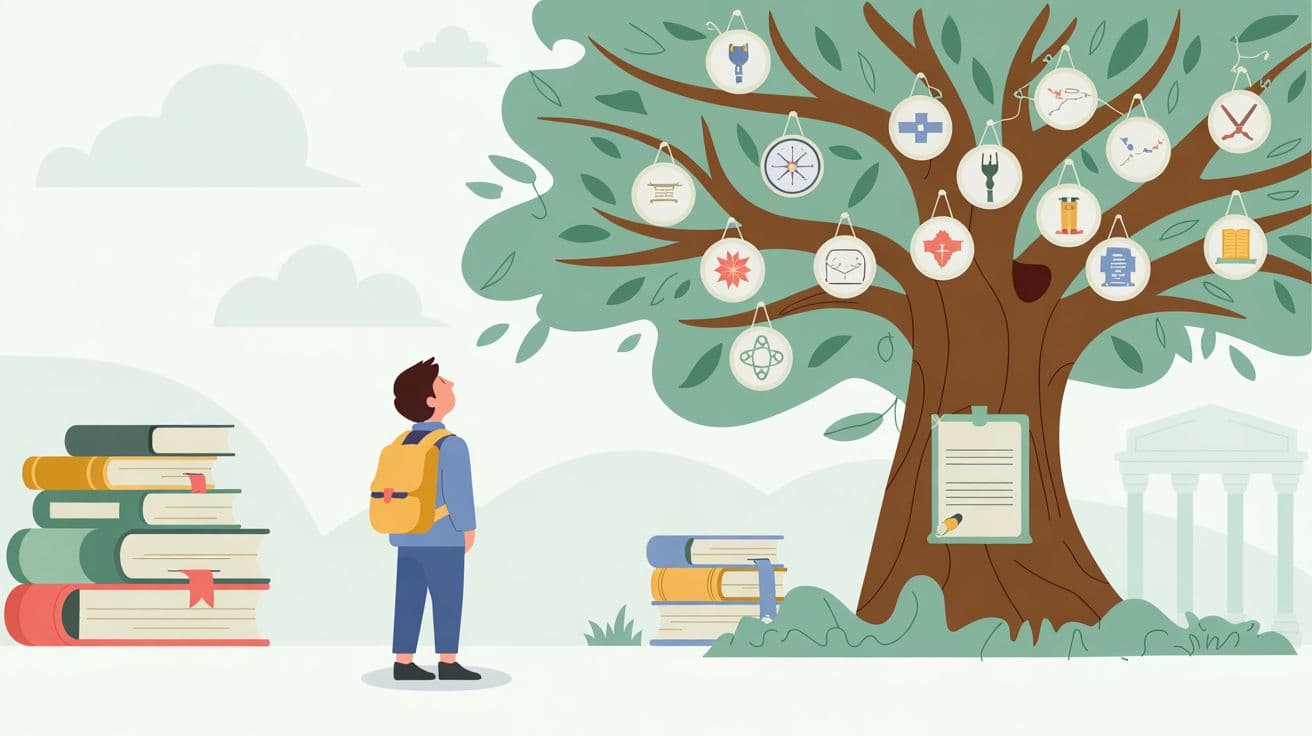Here’s a quick question: When YOU think of history, or hear the word “history”, what comes to mind? Probably images of ancient civilizations, with monuments made of stone and lavish castles visible from far away, or warriors fighting on the battlefield, swords clashing, elephants’ trumpeting, cannons being fired, all that jazz. Well, you won’t be wrong in imagining that. There are typically three kinds of History taught in schools: Ancient, Medieval and Modern. But what you might not know is that the branches of history diverge even more than that, with specialized histories on a number of topics that you might not even have thought of.
In this article, we will go on a journey, exploring some of the lesser-known and totally fascinating branches of history that go way beyond what you learned in your school history textbooks. Trust me on this, you’ll never look at the subject the same way again.
Subjects Offered in Humanities
Why are There So Many Branches of History?
You might be wondering - why so many kinds of history in the first place?
Well, simply put, as time went on, historians realized that just focusing on wars and rulers wasn’t enough. Human life is huge and complex. There’s a kind of history for every passion - culture, food, emotions, fashion - even weather - that has shaped the way we are today.
As our world becomes more interconnected, historians started collaborating with scientists, psychologists, sociologists, and even chefs (yep, really!). That’s how the study of History evolved from just being a timeline of big events to a giant, colorful tapestry of the many human experiences there are out there, relying on different sources of history - not just written texts but also art, food, landscape and emotions.
This shift gave rise to new types of historiography i.e. different ways of writing and interpreting the past and to make sense of this vast tapestry and not overwhelm everyone, we need specialization. Enter: the many, many branches of History.
Commonly Known Branches of History
Before we dive deep into the surprising types of history, let’s quickly look at the more familiar branches of history:
- Political History: Think kings, elections, revolutions.
- Economic History: Money, trade, policies.
- Social History: Everyday lives of people, class systems, society.
- Military History: Wars, battles, strategies and generals.
Sound familiar? Good. Now, let’s jump onto the lesser known gems.
Lesser Known Branches of History
Food History
Yep. You read it right. There is an entire field dedicated to what people ate and how food shaped the world. Did you know that the spice trade was one of the biggest reasons behind European Colonialism? Or that sugar literally changed the courses of empires? Food history looks at cooking techniques, dietary trends and even how certain dishes became symbols of power or culture.
Fashion History
Fashion isn’t just about trends. It’s a mirror to society.
What people wore often reflected their status, gender roles, and even political statements. For example, the French Revolution changed fashion dramatically - people ditched royal-looking clothes for more “equal” styles. Fashion history can tell you a lot about identity, rebellion and even protest.
History of Emotions
Ever wondered how love, or grief, was viewed in ancient times?
Believe it or not, emotions also have a history. How humans thought and felt about emotions such as fear, happiness, or anger has varied throughout time and culture. This quite recent discipline uncovers extensively letters, diaries and literature to see how emotions influenced human conduct and society.
Environmental History
This one’s gaining more prominence these days. It looks at how humans interact with nature over time - forests, rivers, animals, even climate and can explain why certain civilizations collapsed (hello, deforestation!) or how disasters reshaped entire societies!
It’s basically history with a green thumb!
Legal History
Law students, this one’s for you
Legal History studies how laws were made, applied and interpreted through time. It looks at justice systems, rights and legal reforms. From Hammurabi’s Code to modern Constitutions - there’s a story behind every law.
History of Technology
We adore the technology we owe - but it didn’t just magically come into being.
This area of History examines the way innovations, from the press to the smartphone, transformed the lives of humans. But not just what was created, but also its effects - how these technologies altered work, communication and even interpersonal relationships.
Cultural History
Culture is many things - art, music, festivals, beliefs, and traditions.
Cultural History examines how these factors developed and shaped societies. It has overlap with anthropology and assists in explaining how humans created meaning in their lives using rituals, creativity and communal experiences.
Medical History
From leeches to vaccines - this one is a wild ride.
Medical History includes the ways societies addressed disease, treatment and public health. It examines old cures, the history of hospitals, and how concepts regarding health have evolved. Pandemics, superstitions, scientific revolutions - they’re all included.
Gender History
This branch explores the ways gender roles were established, tested and changed. It addresses feminism, masculinity, LGBTQ+ identities, and the manner in which various cultures viewed gender. It’s crucial to understanding power dynamics and individual identities across history.
Microhistory
This one is for all the detail-lovers out there!
Microhistory zooms in on one tiny tale - a single incident, individual, or village - and explores it in astounding depth. It’s like gazing at the entirety of human existence through a minute keyhole. You’d be amazed at how much you can discover from one little-known diary or court case.
Why Do These Branches of History Matter?
You might be wondering - okay, but why should I care about these branches?
Well, to put it simply
- They give you a fuller picture of the past, not just kings and wars.
- They help uncover voices that history often ignores - like women, minorities or ordinary people.
- They connect directly to modern issues: climate change, public health, identity and technology.
In short, these fields help you understand your world better - where it came from, and where it might be going.
How Can You Explore These Branches
Curious to dive deeper? Well, you’re in luck. There are so many different sources of history today to help you explore these lesser-known kinds of History.
Here are a few different ways you can explore these fascinating areas of history:
- Courses: Many Indian and International Universities like JNU, Ashoka University, Harvard and SOAS offer specializations in fields like environmental history, cultural history and gender studies.
- Books: Thanks to the internet, you can find out about the many, many great books out there on these various types of history.
- Documentaries: You can find various documentaries made on these different branches of History to quench your curiosity.
- Online Platforms: Thanks to the advent of the internet, there are various YouTube channels and sites that make it easier and engaging to explore the many types of history.
So, if you’re a student, a history enthusiast, or just a curious person - there’s something out there for you. Studying the different types of historiography can help you understand how narratives are shaped and reshaped over time.











